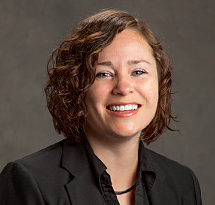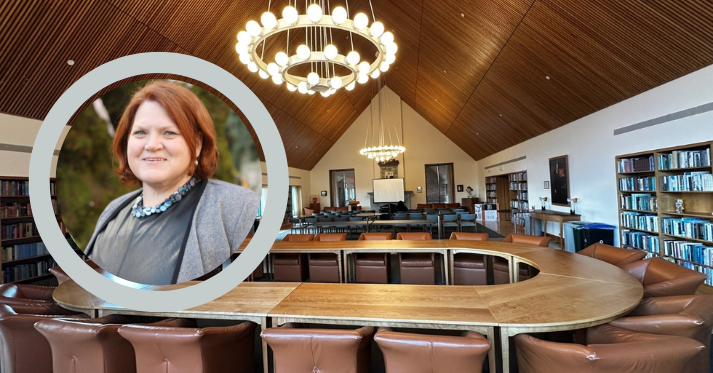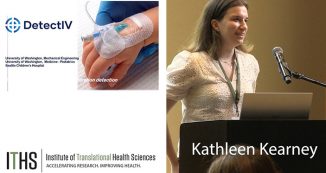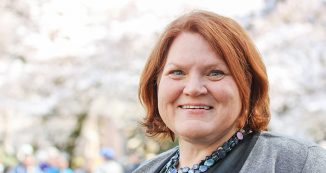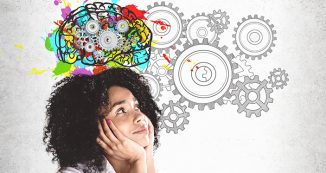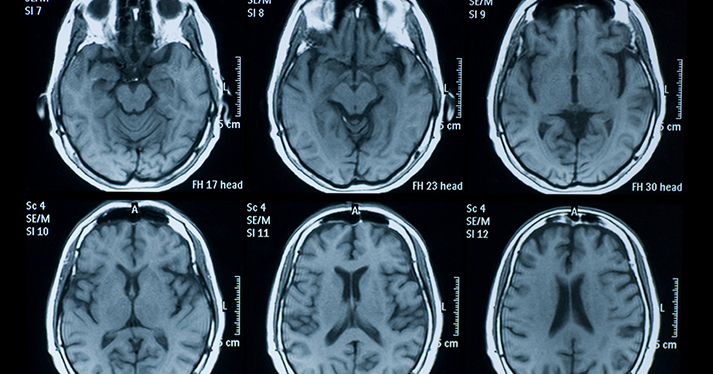
25 May KL2 Scholar Finds 20-Minute Chat Can Help Patients with Mild Traumatic Brain Injuries
Dr. Megan Moore, an Institute of Translational Health Sciences KL2 Scholar, has a passion for helping survivors of traumatic brain injuries. Moore witnessed first-hand the devastating effects these brain injuries have on patients’ lives while working as a social worker in an emergency department and mental health clinics in San Francisco. During this time, she began to recognize the limitations of available treatments and decided to pursue a PhD in social work, with the goal of contributing to an evidence base to support practice with survivors of traumatic brain injuries.
Every year, 2.5 million Americans sustain a traumatic brain injury, and more than 70 percent of those are classified as a mild traumatic brain injury caused by a bump or blow to the head. Despite the prevalence, there is a lack of validated and standardized treatments. “The standard of care [for mild injuries] is really pretty much nothing or discharge instructions with resources,” Moore said.
That lack of treatment options can be a problem for the 15 to 20 percent of patients who have persistent and disabling post-concussive symptoms like depression, memory issues, and problems completing once-routine tasks. Moore’s goal is to prevent those patients from falling through the cracks by providing follow-up care and linking them to outpatient services.
While conducting her doctoral research at the University of California, Berkeley, Moore designed an intervention that ran at San Francisco General Hospital, a Level 1 Trauma Center. For the intervention, medical staff identified patients with mild traumatic brain injuries and referred them to social workers, who provided education, coping strategies, and resources.
The social workers and patients in the study also discussed alcohol use and where to find help since many people with traumatic brain injuries are injured while intoxicated. The whole intervention took about 20 minutes. Social workers later followed up with a phone call to see how patients were doing and offer targeted counseling and referrals to a concussion clinic and other resources, if needed.
The study showed those who received the intervention were doing better and using less alcohol than those who received standard care.
What I really like about the KL2 program is that we have so much support for our work. Not only our work, but also how we develop our ideas and how we develop as faculty members.
Moore’s overarching drive is to provide social workers with “specialized training on mild traumatic brain injuries to help bridge the psychological and social aspects of treatment with medical care.”
“Social workers have a generalist training,” Moore added. “They have good clinical, interviewing, and assessment skills. They have, generally, some evidence-based practices they can pull out of their toolbox. But when it comes to a specific kind of injury, they are not necessarily specialized in that. One of the things I’m working on is trying to develop some practice standards.”
Moore’s research is supported by the ITHS KL2 program, which provides funding, resources, and mentorship to early career investigators. “What I really like about the KL2 program is that we have so much support for our work,” Moore said. “Not only our work, but also how we develop our ideas and how we develop as faculty members.”
Moore added that she appreciates the environment ITHS KL2 program director Dr. John Amory creates for the weekly seminar meetings. “He really sets a tone of constructive feedback, openness, asking questions,” she explained. “He creates an environment where it’s more normative to ask, where it’s expected that you’re going to get feedback and questions that might be hard. I think that actually really helps elevate the seminar to a really productive level for everybody.”




